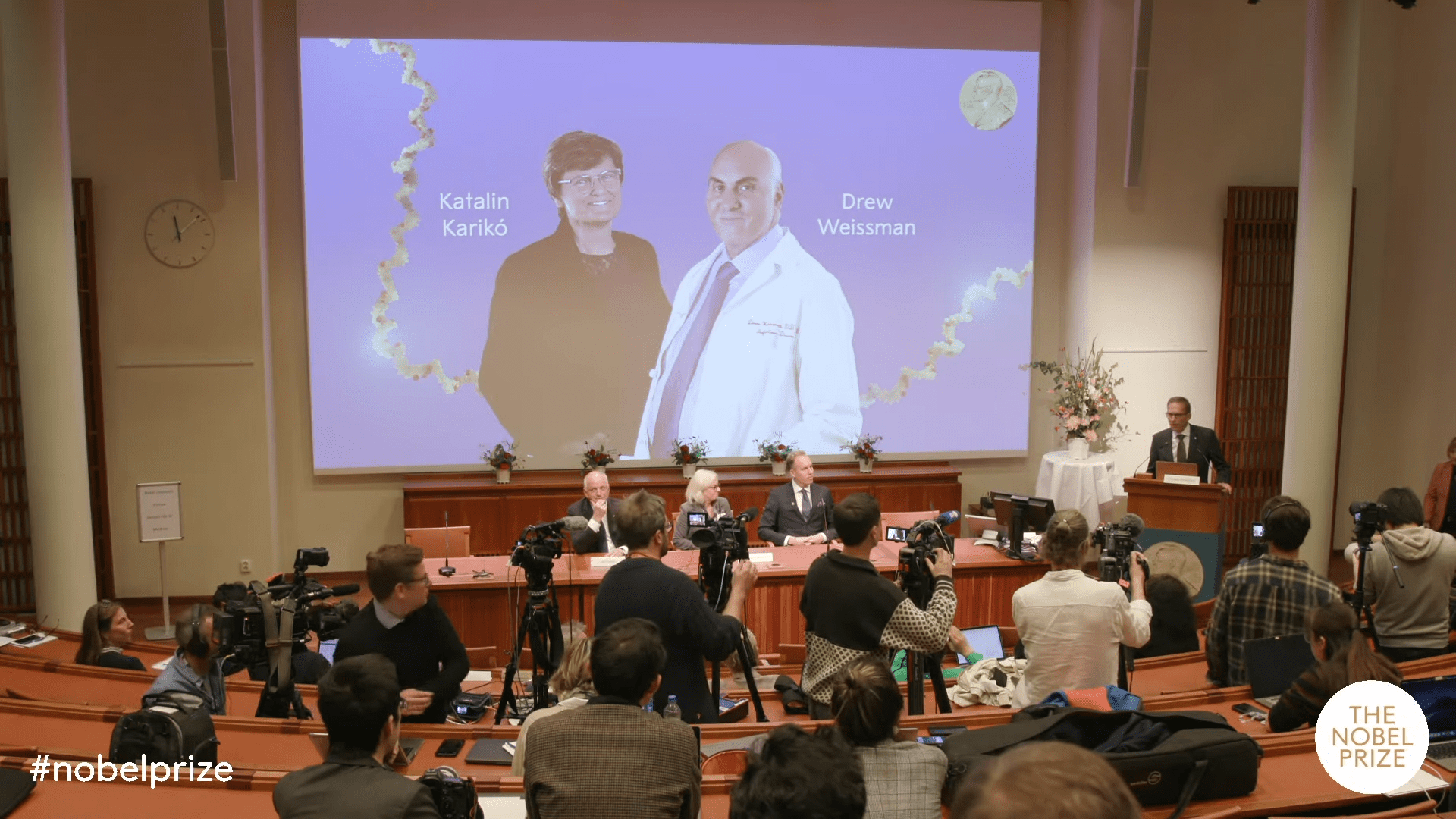The 2023 Nobel Prize for Physiology or Medicine was jointly awarded to Hungarian and U.S. scientists Katalin Karikó and Drew Weissman for their discoveries concerning nucleoside base modifications that enabled the development of effective mRNA vaccines against COVID-19.
The discoveries of both laureates were essential for the development of an effective vaccine against the COVID-19 pandemic. Their research findings brought ideas about how the mRNA interacts with the human immune system.
“Karikó and Weissman noticed that dendritic cells recognize in vitro transcribed mRNA as a foreign substance, which leads to their activation and the release of inflammatory signaling molecules. They wondered why the in vitro transcribed mRNA was recognized as foreign while mRNA from mammalian cells did not give rise to the same reaction. Karikó and Weissman realized that some critical properties must distinguish the different types of mRNA.”
The Nobel Assembly at Karolinska Institutet
Karikó and Weissman, at the University of Pennsylvania, developed a way of delivering the mRNA to cells without any undesirable immune response. The COVID-19 vaccines produced by leading producers used the spike proteins of the SARS-CoV-2 virus which can stimulate the immune system of humans to produce antibodies against SARS-CoV-2.
Both Karikó and Weissman will receive a sum of 10 million Swedish kronor (half each).
Notable Publications
Karikó, K., Buckstein, M., Ni, H. and Weissman, D. Suppression of RNA Recognition by Toll-like Receptors: The impact of nucleoside modification and the evolutionary origin of RNA. Immunity 23, 165–175 (2005).
Karikó, K., Muramatsu, H., Welsh, F.A., Ludwig, J., Kato, H., Akira, S. and Weissman, D. Incorporation of pseudouridine into mRNA yields superior nonimmunogenic vector with increased translational capacity and biological stability. Mol Ther 16, 1833–1840 (2008).
Anderson, B.R., Muramatsu, H., Nallagatla, S.R., Bevilacqua, P.C., Sansing, L.H., Weissman, D. and Karikó, K. Incorporation of pseudouridine into mRNA enhances translation by diminishing PKR activation. Nucleic Acids Res. 38, 5884–5892 (2010).
Report: Achuth B S
Published: 02 October 2023 |17:25
Updated: 02 October 2023 | 23:00






